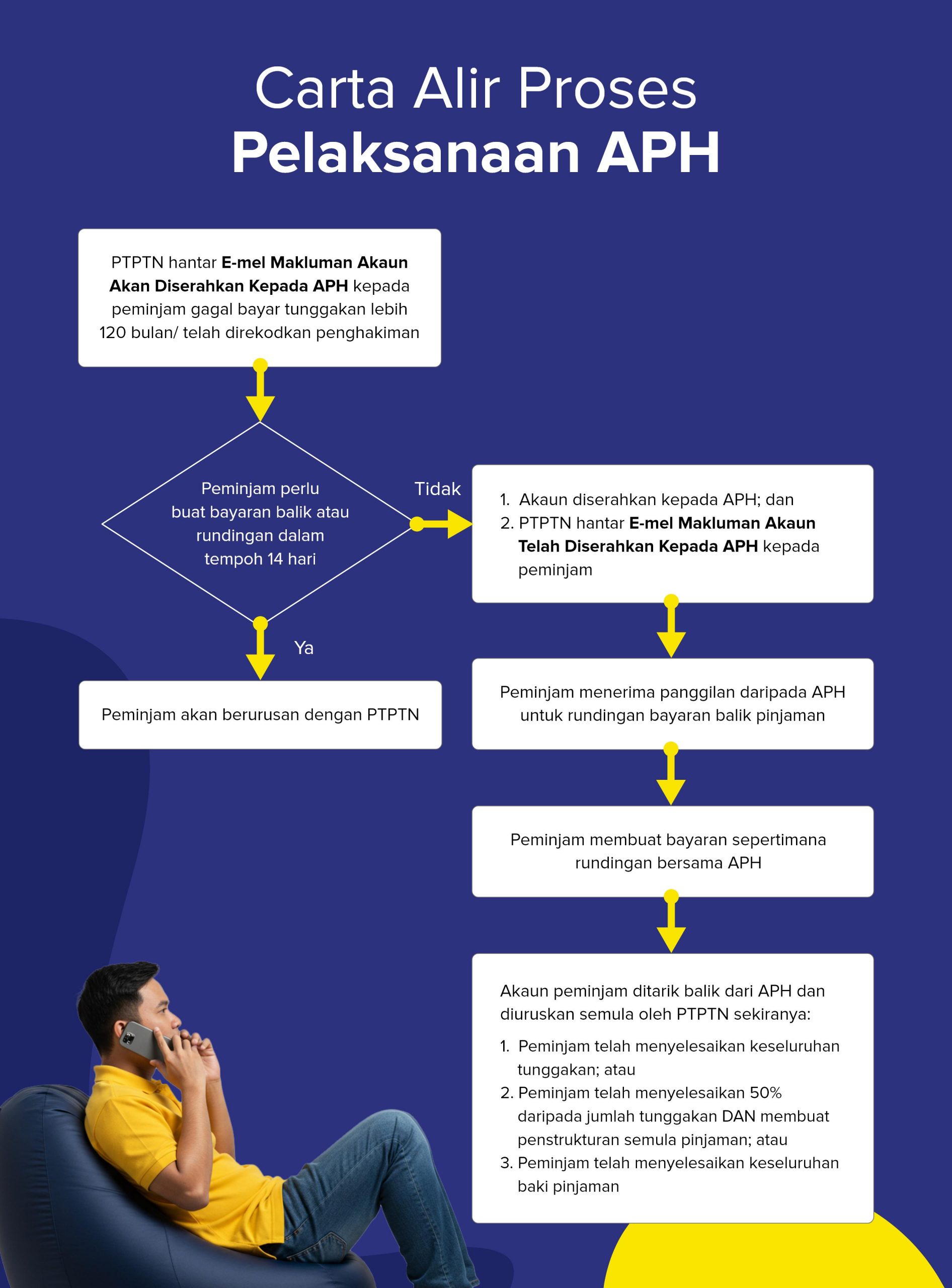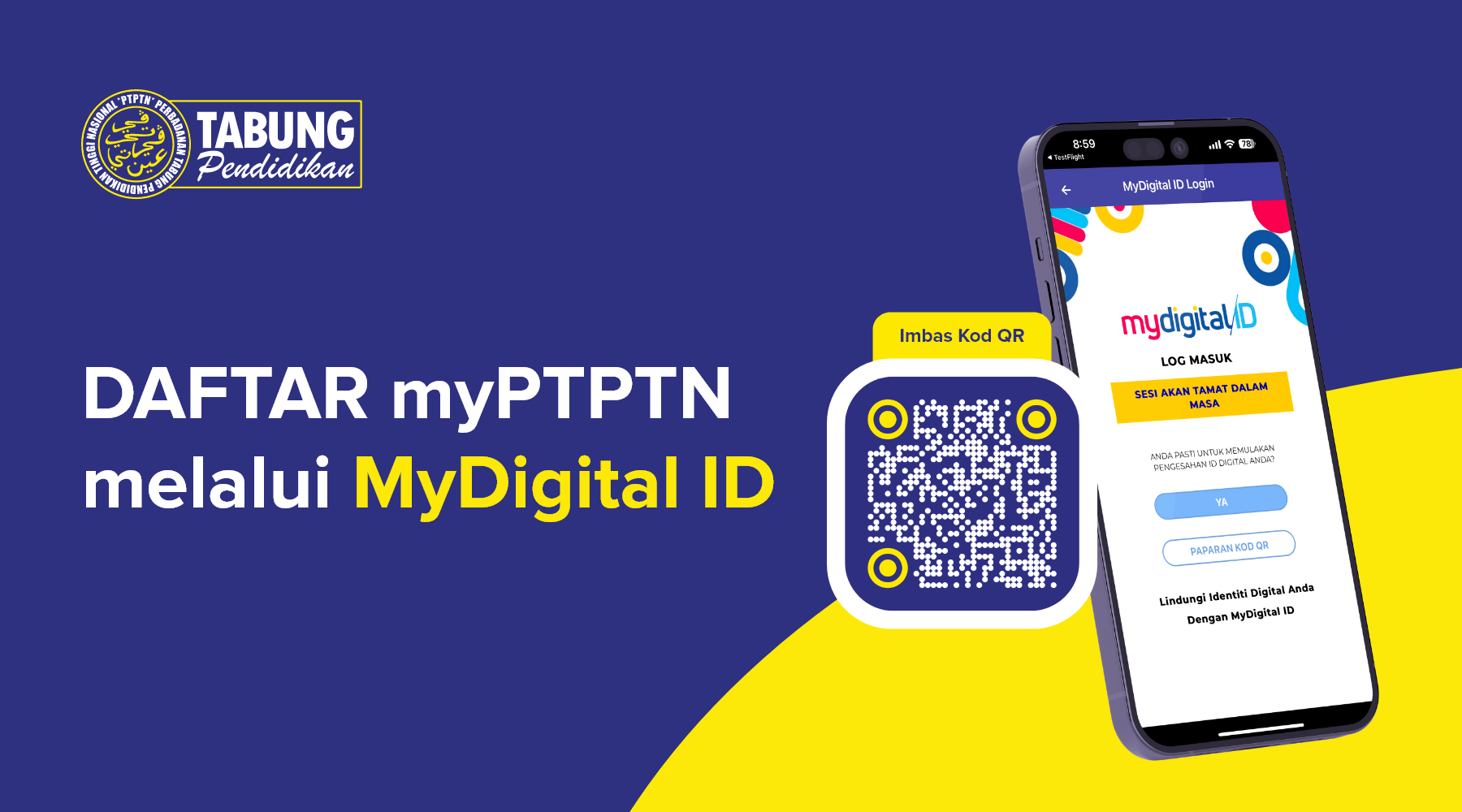Introduction
The National Higher Education Fund Corporation (PTPTN) continuously strives to ensure the sustainability of education loan funds for the benefit of future generations. However, the low repayment rate from some borrowers raises concerns about PTPTN's financial sustainability.
To date, a significant number of borrowers have been identified as failing to settle their education loan debts, especially those with arrears exceeding 10 years. PTPTN has made various efforts to help them repay their overdue loans without causing financial strain, yet many still fail to come forward for consultation. If this situation is not addressed promptly, it will have long-term effects on future generations, the higher education system, and the development of the nation's human capital.
Therefore, PTPTN will engage the services of the Debt Consultancy Agency (APH) as one of the strategic measures to address the issue of chronic loan defaulters. This service will involve borrowers with arrears exceeding 120 months and/ or those who have had a court judgment recorded against them. This move aligns with the government's aspiration to strengthen the collection of PTPTN education loan repayments.
Contents
Appointment of the APH
PTPTN places great importance on the security of information and the rights of borrowers. The appointment of APH is based on Section 35 of the PTPTN Act 1997 (Act 566), which grants PTPTN the authority to appoint any agent, consultant, or individual to carry out related tasks or functions, including debt collection.
Two (2) agencies that have been officially appointed by PTPTN as APHs are PASADANA SDN BHD and RURAL CAPITAL BERHAD. Each APH will be provided with an appointment letter and/or a letter of representation as official identification when carrying out their duties.
If a borrower receives a call or is contacted by someone claiming to be a representative of APH, they are advised to verify the identity of that individual. If there is any doubt, borrowers can contact the PTPTN Careline at 03-2193 3000 or Live Chat on the PTPTN Portal to make a verification or lodge a complaint.
Submission of Borrower Information to the APH
Before a borrower's information is submitted to APH, PTPTN will issue a notification via the email address registered in PTPTN’s records. Borrowers will be given a period of 14 days to settle their outstanding loan arrears or to visit PTPTN for consultation.
If the borrower fails to take action within the given period, their account will be handed over to APH for further action. Once the account is submitted, all matters related to the borrower's loan will be managed entirely through APH, and the borrower will no longer be allowed to negotiate directly with PTPTN.
Imposition of Service Fees & Loan Restructuring
Each payment collected by APH will be subject to a service fee about 15% from the amount successfully collected will be charged, and this fee is fully borne by the borrower.
Loan restructuring is only allowed after the borrower has successfully settled at least 50% of the total outstanding arrears. The borrower must apply for loan restructuring and complete all related processes, including returning the completed agreement documents via the myPTPTN web application. Once this is done, the borrower's account will be removed from APH and will be managed by PTPTN once again.
Official Channels for Loan Repayment
All loan repayments must be made through PTPTN's official channels only. For faster, easier, and more secure transactions, borrowers are encouraged to make repayments via myPTPTN. APH is not allowed to accept any cash payments from borrowers. After making a payment, borrowers must submit proof of payment to APH for verification and record purposes.
Flow Chart of the APH Implementation Process
This flow chart is provided to help borrowers better understand each step involved, offering a clearer overview of the APH implementation process carried out by PTPTN.
Conclusion
The implementation of APH by PTPTN is a firm and structured initiative to address the issue of defaulting borrowers, which affects the national education financing system. Through this appointment, PTPTN aims to enhance the effectiveness of loan collection in a professional manner without neglecting the welfare of borrowers.
Therefore, borrowers are encouraged to take proactive steps immediately upon receiving a notice from PTPTN, either by making a payment or visiting a PTPTN office for consultation before their loan account is handed over to APH. The commitment to repay loans is not only a legal obligation but also a moral responsibility for the future of education for the next generation.
Read the FAQs of APH.












